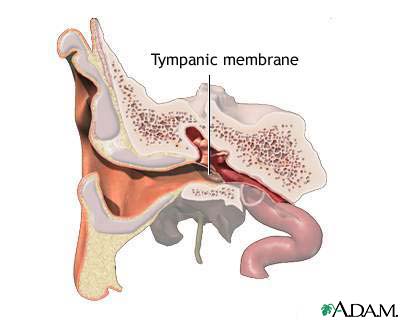Treatment
Medications to treat peripheral vertigo may include:
- Anticholinergics (such as scopolamine)
- Antihistamines (such as meclizine)
- Benzodiazepines (such as diazepam or lorazepam)
- Promethazine (to treat nausea and vomiting)
Benign positional vertigo is most often treated with physical maneuvers that help reposition small structures in the semicircular canals of the inner ear. This reduces or stops the vertigo.
The cause of central vertigo should be identified and treated as appropriate.
Try to avoid head positions that cause vertigo. Use caution in situations such as driving, walking, or operating heavy equipment. Even short episodes of vertigo may be dangerous.
Prognosis (Expectations)
The outcome depends on the cause.
Complications
Persistent, unrelieved vertigo can interfere with driving, work, and lifestyle. It can also cause falls, which can lead to many injuries, including hip fractures.
Calling Your Health Care Provider
Call for an appointment with your health care provider if vertigo is persistent or troublesome
Pictures & Images
Tympanic membrane
The tympanic membrane is also called the eardrum. It separates the outer ear from the middle ear. When soundwaves reach the tympanic membrane they cause it to vibrate. The vibrations are then transferred to the tiny bones in the middle ear. The middle ear bones then transfer the vibrating signals to the inner ear. The tympanic membrane is made up of a thin connective tissue membrane covered by skin on the outside and mucosa on the internal surface.
-
Vertigo-associated disorders: Overview, Causes
-
Vertigo-associated disorders: Symptoms & Signs, Diagnosis & Tests
-
Vertigo-associated disorders: Treatment
Review Date : 10/30/2008
Reviewed By : David C. Dugdale, III, MD, Professor of Medicine, Division of General Medicine, Department of Medicine, University of Washington School of Medicine; and Daniel B. Hoch, PhD, MD, Assistant Professor of Neurology, Harvard Medical School, Department of Neurology, Massachusetts General Hospital. Also reviewed by David Zieve, MD, MHA, Medical Director, A.D.A.M., Inc.
